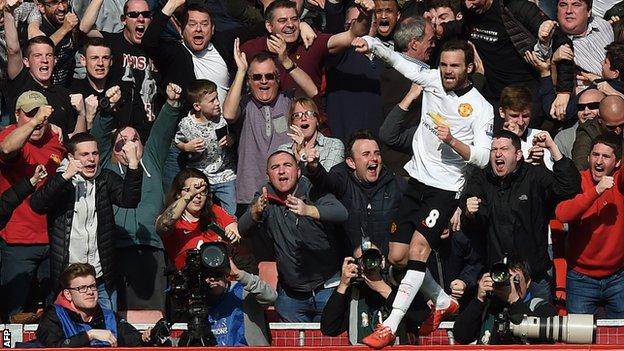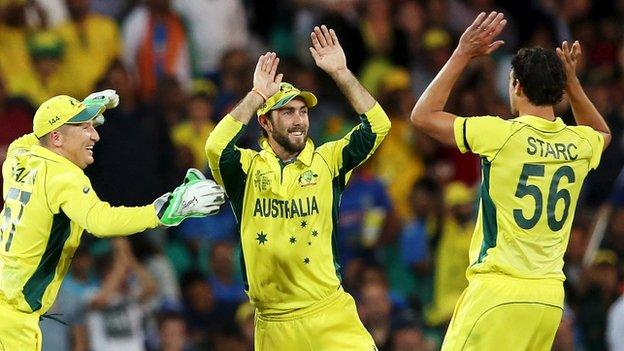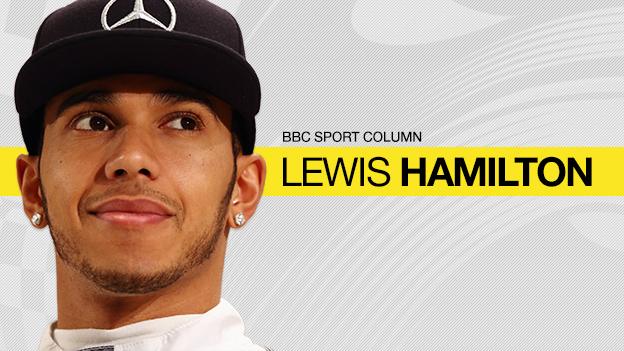Premier League to share £1bn of TV deal with English football
- Published

The Premier League agreed a record TV rights deal worth £5.136bn
Premier League clubs have agreed to share at least £1bn of their record UK TV rights deal with lower league sides and grassroots football.
The money will include parachute payments to relegated clubs and a living wage for all full-time staff.
The Premier League sold the live TV rights for £5.136bn to Sky and BT for three years from 2016.
Donations have risen 40% from £700m after TV rights money increased by 70% from £3bn.
The £1bn figure, agreed at a meeting of Premier League clubs on Thursday, is dependent on a regulatory challenge from Ofcom and income from international TV rights sales.
In addition to providing parachute payments to relegated teams, the Premier League's member clubs agreed to invest in five key areas:
Grassroots facilities
Participation
Fan engagement and match day experience
Solidarity with lower leagues
Supporting disadvantaged groups
Premier League chief executive Richard Scudamore said: "These are unprecedented levels of redistribution in world sport, let alone football, which will deliver long-term progress for English football whether you are a fan, lower-league club or involved in the grassroots."
All full-time staff at Premier League clubs will be paid the living wage - based on the amount an individual needs to earn to cover the basic costs of living - by the start of the 2016-17 season.
The living wage is currently set at £9.15 an hour in London and £7.85 an hour in the rest of the UK.
BBC sports editor Dan Roan's analysis |
|---|
With a record new £5bn TV deal, and with the election looming, the Premier League has been under mounting pressure to share more of its wealth for the good of the game. This £1bn 'giveaway' will please many who worry about inequality in the sport. Ahead of the result of an Ofcom investigation into how the league sells its TV rights, this also serves as a convenient reminder of the benefits of the status quo. The commitment to pay the living wage will also be welcomed by many. |
Some critics will say a 40% increase in the amount the league gives away could and should have been more, given that the TV deal leapt by 70%. They will also wait to see whether a larger proportion of the money - currently 3% of revenue - goes to the grassroots. Most goes to relegated clubs in the form of parachute payments. |
On the issue of ticket prices, while recent initiatives to help travelling fans will continue, do not be surprised if the clubs remain resistant to demands for action over price rises. |
Rhys Moore, of the Living Wage Foundation, said: "It is definitely a move in the right direction. However, the vast majority of low-paid work in the Premier League is with sub-contractors.
"This commitment doesn't address that, which is why we think living wage accreditation is so important. The commitment Chelsea made to become the only accredited living wage employer in the Premier League goes so much further than this."
The Premier League announcement came on the same day the Football Supporters' Federation launched its latest protest about the cost of watching live football.
It presented an open letter to Premier League chairmen, co-signed by fan groups from every top-flight club, detailing what it believes are key elements such as the cost of attending live matches, facilities for away fans,
A new structure of the Premier league board was also agreed at Thursday's meeting.
Scudamore was appointed as executive chairman, alongside two independent non-executive directors, Claudia Arney and Kevin Beeston.
- Published26 March 2015

- Published26 March 2015

- Published26 March 2015